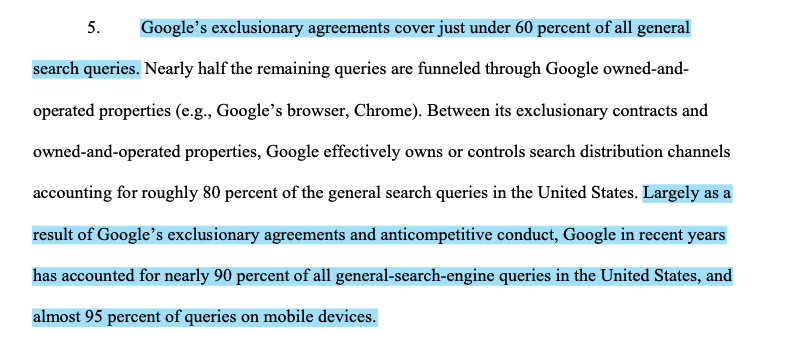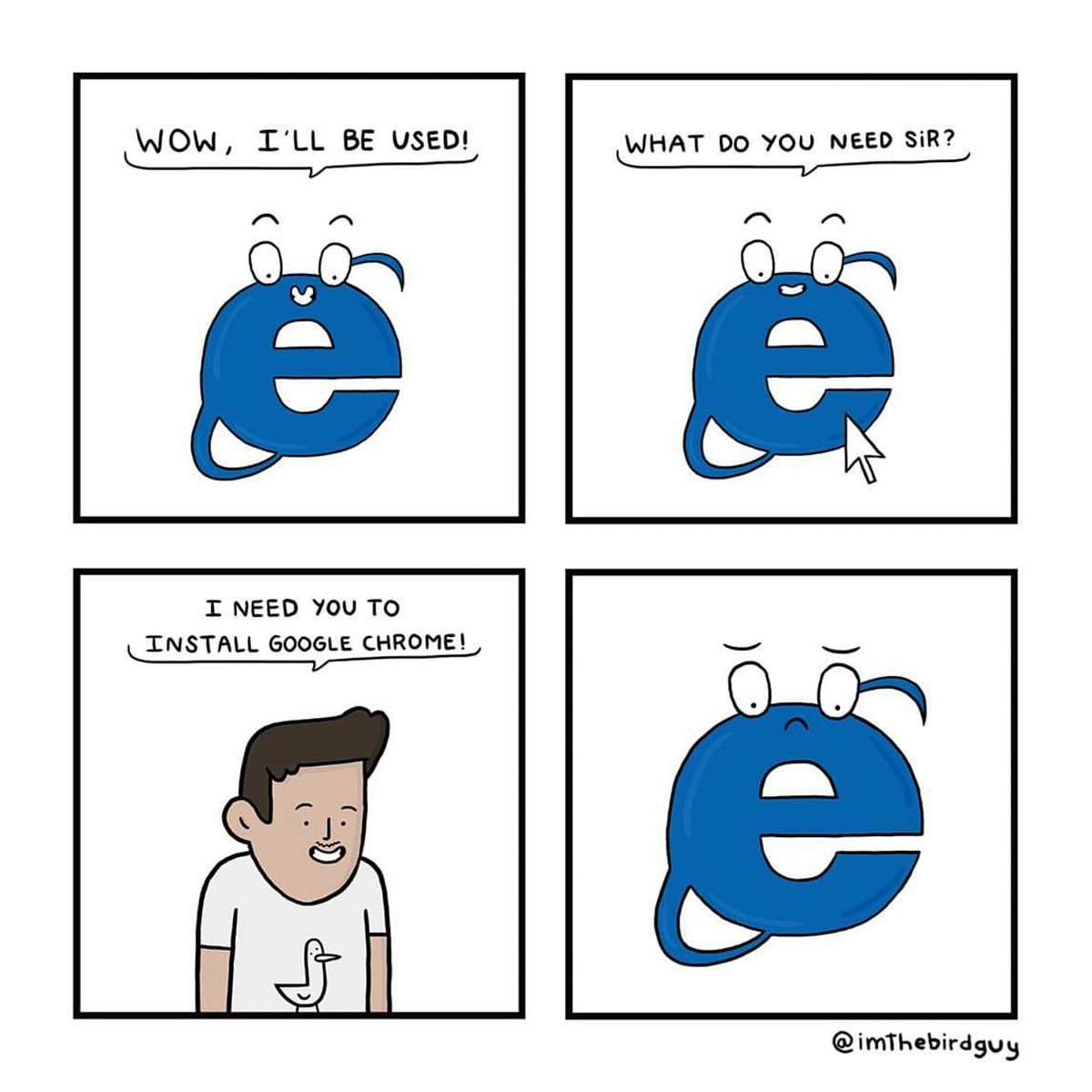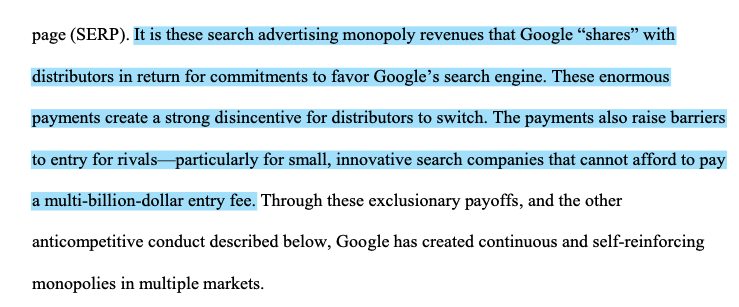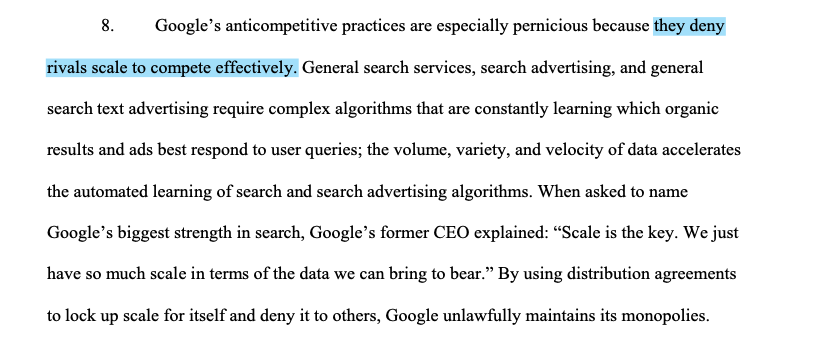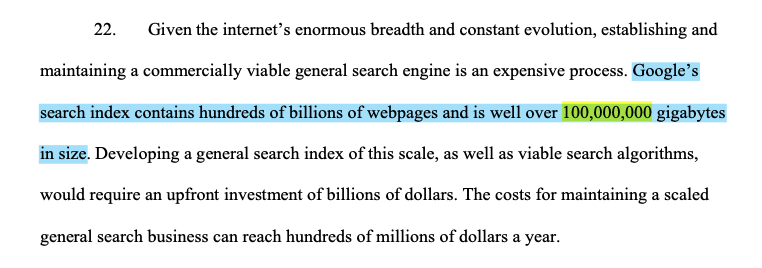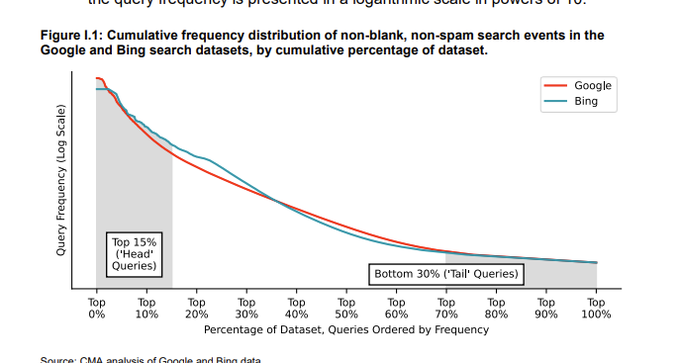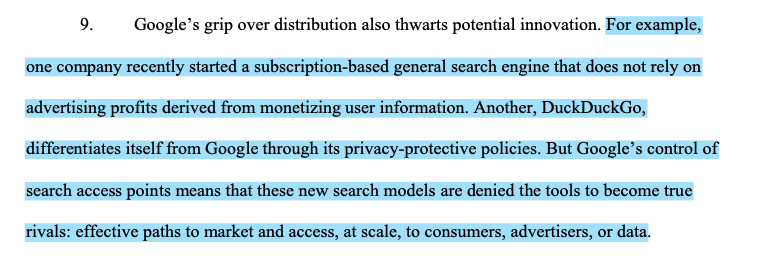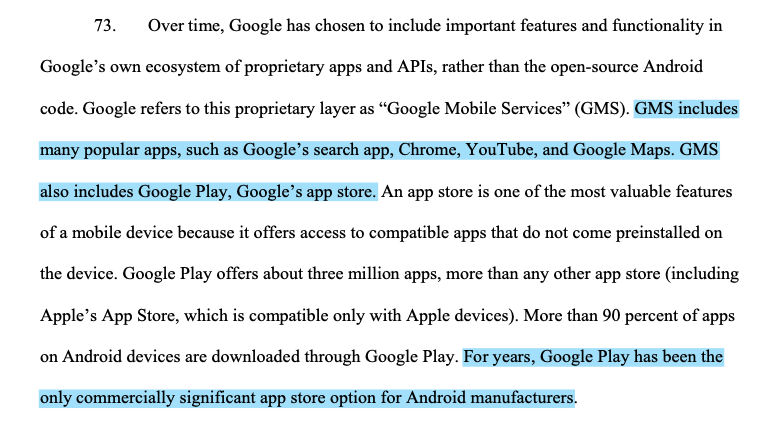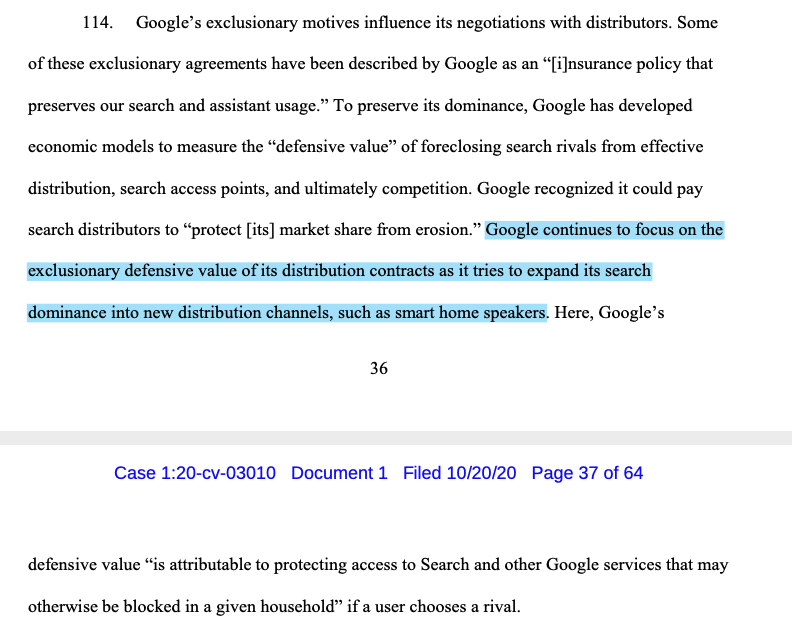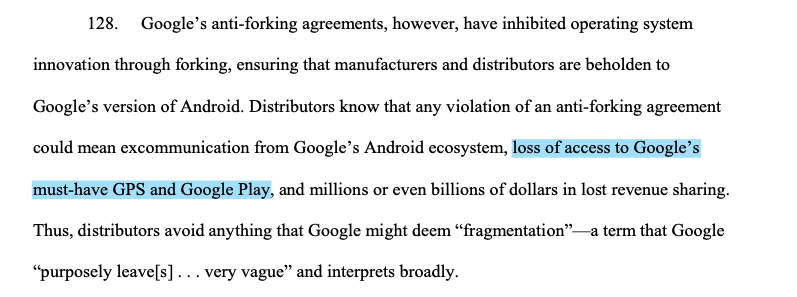Some thoughts on United States vs Google, the lawsuit that might end up being this era& #39;s US vs Microsoft.
I am not a lawyer and these are my judgements about the content of the complaint from an economic policy POV, not its legal prospects.
I am not a lawyer and these are my judgements about the content of the complaint from an economic policy POV, not its legal prospects.
The lawsuit& #39;s claims are hugely dependent on the idea that being the default search engine on a browser or operating system gives you immense power over what those users do.
There are two possible reasons people use Google: because they like it, or because of these defaults.
There are two possible reasons people use Google: because they like it, or because of these defaults.
One reason to doubt this is that desktop users seem to be perfectly happy to switch from the default browser, Edge (formerly Internet Explorer), to a browser they prefer: Chrome.
69% of desktop users use Chrome, even though it is not the default on Windows or macOS.
69% of desktop users use Chrome, even though it is not the default on Windows or macOS.
Obviously, defaults are valuable – Google pays a lot for them. But that doesn& #39;t make them anticompetitive, unless it& #39;s also anticompetitive for a shop to pay for a really convenient location. The question is how easily users can access alternatives – in this case, very easily.
And it& #39;s pretty likely that Google being the default is what users want. Would users be pleased if, eg, DuckDuckGo was the new default on the iPhone?
In a world where *nobody* could bid for default placements, would Apple& #39;s customers be happier if it made Bing the default?
In a world where *nobody* could bid for default placements, would Apple& #39;s customers be happier if it made Bing the default?
But, ultimately, much of the DoJ& #39;s case comes down to how effectively "being the default" prevents customers from switching. Even Google& #39;s competitors don& #39;t claim it& #39;s very hard – not "a click away", but about 20 seconds away. https://spreadprivacy.com/one-click-away/ ">https://spreadprivacy.com/one-click...
A lot of the claims don& #39;t really make sense when you remember that Google& #39;s main competitor is Microsoft, which is actually significantly *larger* than Google by market cap (MSFT is $1.62 trillion vs Alphabet& #39;s puny $1.02 trillion).
If the model here is that Google can extract monopoly rents by paying up-front for the monopoly position, why doesn& #39;t Microsoft just outbid them and get those rents for itself?
The DoJ alleges that scale and high costs of maintaining a search engine mean that Google has an advantage over competitors – Google& #39;s search index is 100,000,000 GB. But that& #39;s not an argument that Google is acting anticompetitively – these are costs everyone, inc Google, faces.
A better idea is that that "long tail" search data Google sees because of its size allows it to refine its results in a way that Bing cannot (see charts from the CMA market study). But it& #39;s not clear that the benefits of this are linear, as Alec argues.
https://twitter.com/AlecStapp/status/1318610755793682433">https://twitter.com/AlecStapp...
https://twitter.com/AlecStapp/status/1318610755793682433">https://twitter.com/AlecStapp...
Here I think the DoJ is really stretching credulity. Does anyone believe that if a paid-for search engine was the default on people& #39;s phones, it would be that much more successful?
The other side of the complaint relates to Android. And here, it is Android& #39;s *openness* that seems to be the problem: because Google uses contractual agreements to get Search on Android, instead of building Search inextricably into Android, it is a target.
To see what I mean, imagine if Apple started allowing iOS to be installed on other smartphones in the exact form it comes on iPhone. Would it now be acting anticompetitively? It requires Safari to be preinstalled, after all.
If your answer is "yes", I think you have an odd idea of competition – that it is weakened by allowing more companies to use some popular software.
If your answer is "no", why is it problematic when Google does the equivalent, but contractually rather than via software design?
If your answer is "no", why is it problematic when Google does the equivalent, but contractually rather than via software design?
The DoJ& #39;s position seems to be that Google should have to give away its apps for free, and continue developing them & Android without making money from them.
I don& #39;t think it& #39;s realistic to expect that Google would invest in Android if it couldn& #39;t expect to make money from it.
I don& #39;t think it& #39;s realistic to expect that Google would invest in Android if it couldn& #39;t expect to make money from it.
The DoJ seems to consider it to be sinister for Google to develop products that use Google Search – in the case of voice assistants, for example.
Normally a company developing a new product to avoid competitors capturing its customers would be called "competition".
Normally a company developing a new product to avoid competitors capturing its customers would be called "competition".
The complaint consistently argues that Google should develop and give away products for free, and that if it does not, it is acting anticompetitively. This is not a workable model of how businesses should operate.
A few questions to consider:
1) What would happen to the browser market if search engines could not pay for default positions?
2) Would consumers be grateful if only Google was banned from paying for the default position, and they found (eg) Bing was the new default?
1) What would happen to the browser market if search engines could not pay for default positions?
2) Would consumers be grateful if only Google was banned from paying for the default position, and they found (eg) Bing was the new default?
3) What would happen to Android if Google was banned from requiring that OEMs include Google Search (etc) as the default? Would Google& #39;s incentives to invest in it be stronger or weaker? Would competition with iOS increase or decrease?
4) Is it anticompetitive for Google to build a browser or voice assistant that people want to use, if Google builds its Search engine into those? If it could not do so, what would happen to those products?
Here& #39;s my basic view: it& #39;s fine for Google to bundle Search into Android, Chrome, etc. It gives it incentives to invest in those things. Other rivals have to work harder to compete and consumers benefit. They can switch to alternatives if they don& #39;t like it.
It& #39;s fine for Google to pay Apple to be the default search engine. Users probably like it that way, but it& #39;d be fine if Bing outbid them. It& #39;s good for Apple to make money from things like that, because it gives *it* more incentive to improve the iPhone and iOS.
These are just initial thoughts based on my first read of the complaint. I& #39;ll write in more detail as it continues. In the meantime, check out this thoughtful piece on market definition and market power in search by @AuerDirk. https://truthonthemarket.com/2020/10/21/what-is-a-search-engine-2/">https://truthonthemarket.com/2020/10/2...
This video explainer by @randypicker is brilliant – a must-watch to learn about the case, with useful discussion of how it might turn out towards the end. https://www.youtube.com/watch?v=6P2oGo9ifdc">https://www.youtube.com/watch...
And here is @AlecStapp& #39;s thread, which as ever is excellent and informative. https://twitter.com/AlecStapp/status/1318605786629767168">https://twitter.com/AlecStapp...

 Read on Twitter
Read on Twitter
